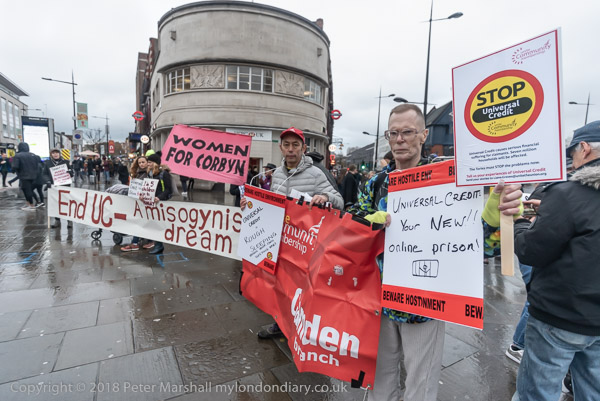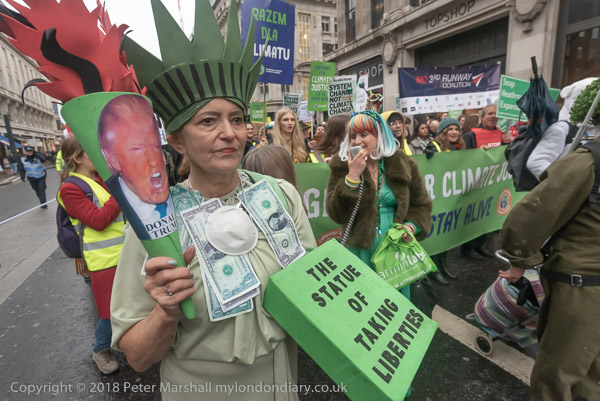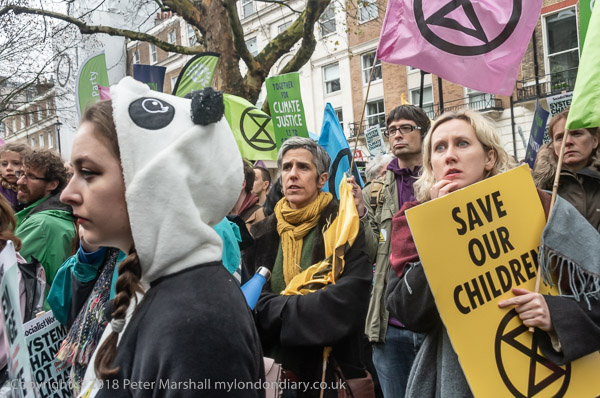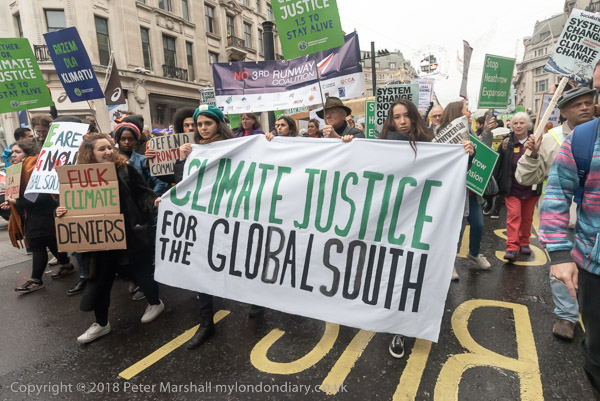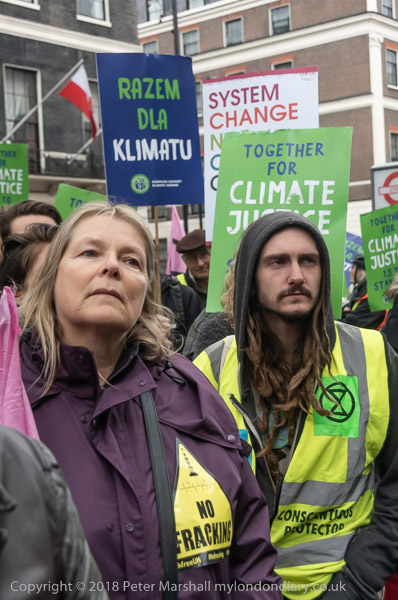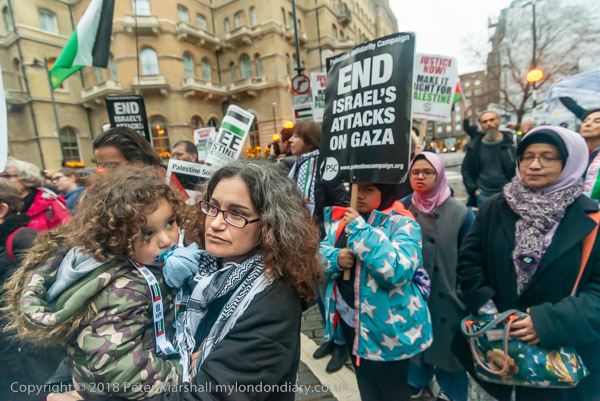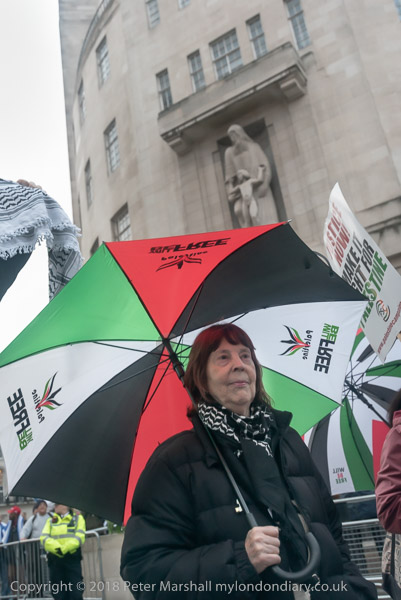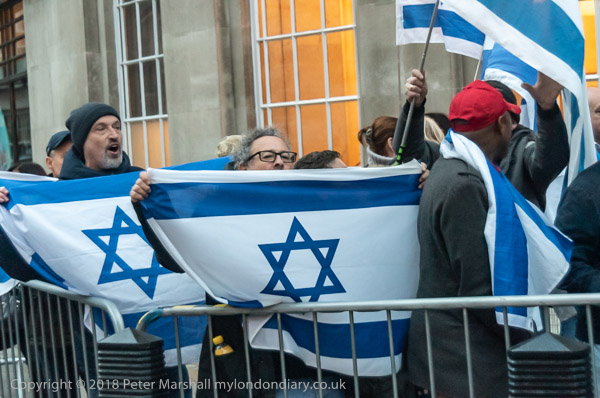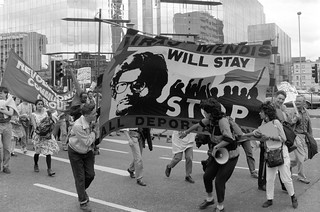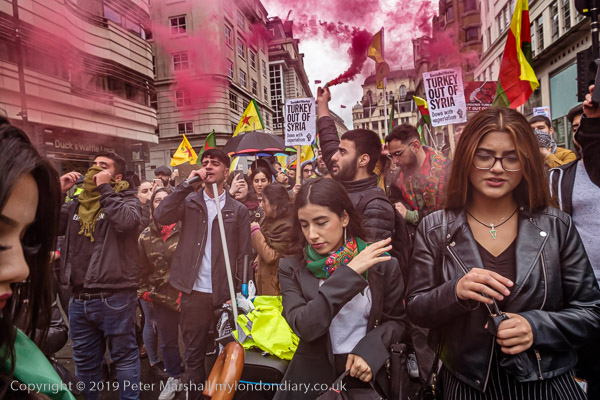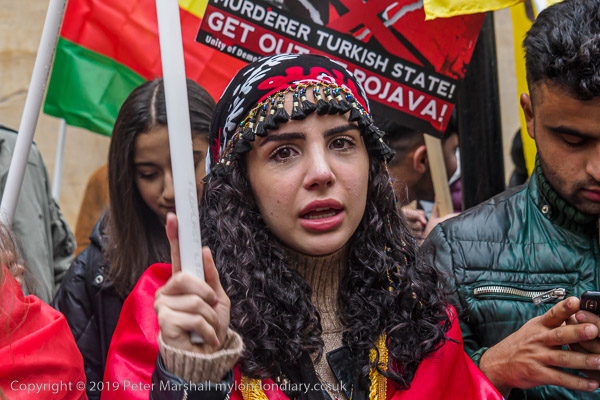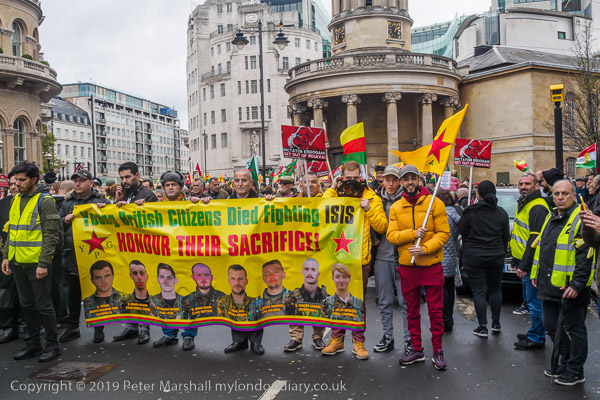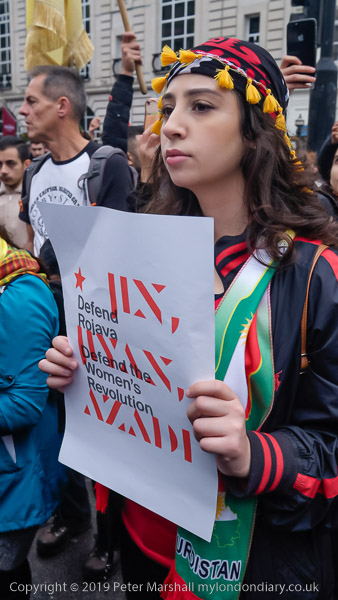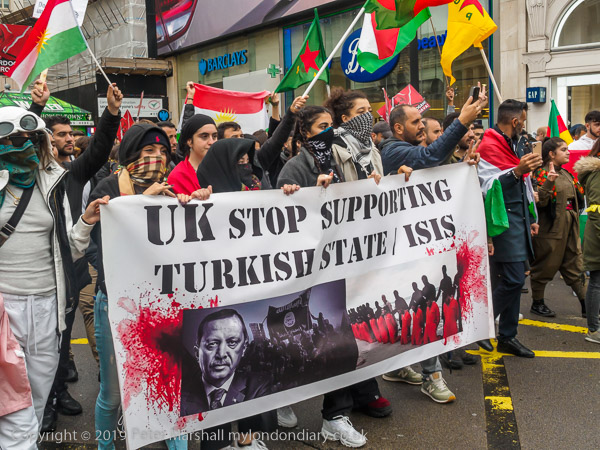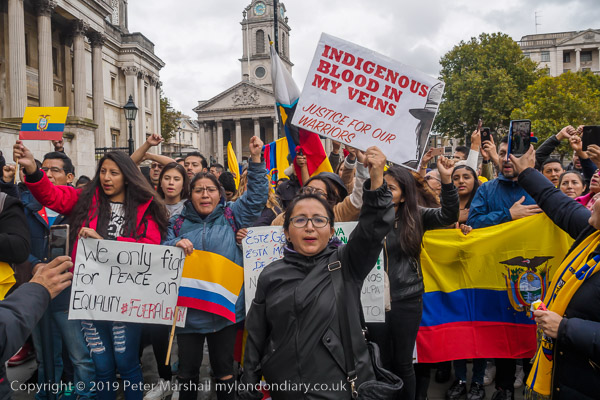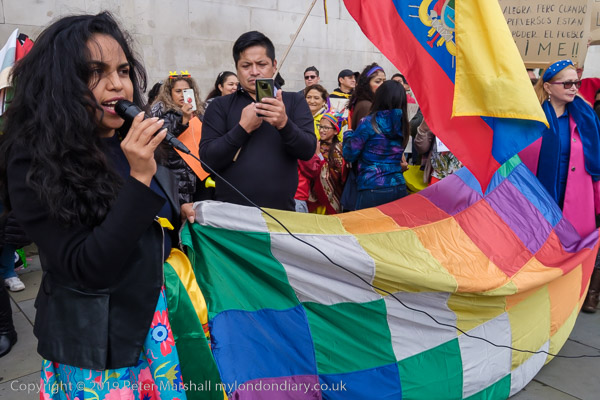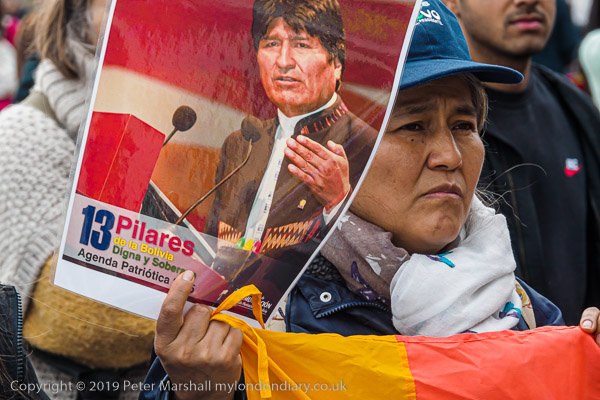Today, 10th December is UN Human Rights Day. I think the 10th December 2016 may have set a personal record in that I covered seven events, although one was only a fleeting meeting with a Rhino as I passed through Parliament Square. But five were human rights protests.
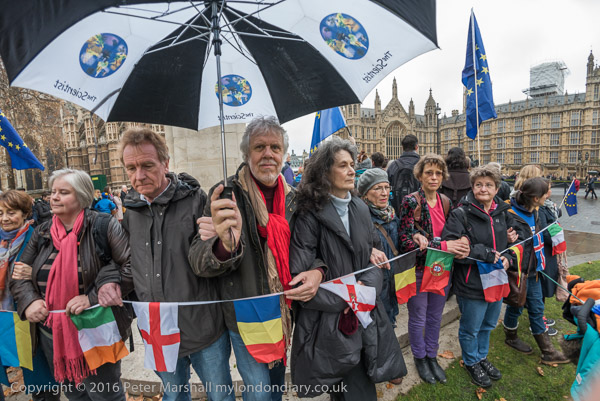
My work began in Old Palace Yard, in front of the House of Lords and around the rather ugly statue of George V. On 10th December 1948 the UN General Assembly adopted the Universal Declaration of Human Rights (UDHR) and since then the day has been celebrated in countries around the world as Human Rights Day.
The UK was one of the countries that played a large part in both the establishment of the UN, whose first General Assembly was held in the early months of 1946 just a few hundred yards away in Methodist Central Hall, and in the UDHR, which “proclaims the inalienable rights which everyone is entitled to as a human being”.
But our current government finds some of its provisions inconvenient and one of the driving forces of Brexit is that it will provide the opportunity to weaken compliance with the UDHR, threatening our human rights including workers rights to paid holidays, maternity leave and fair treatment at work, disability rights and the right to freedom from discrimination.
Supporters of the UK remaining in Europe were protesting in silent chains in towns and cities across the country and several hundred had come to do so in the centre of London. I didn’t find it easy to produce interesting pictures of what was a rather static event.
Silent Chain for Europe
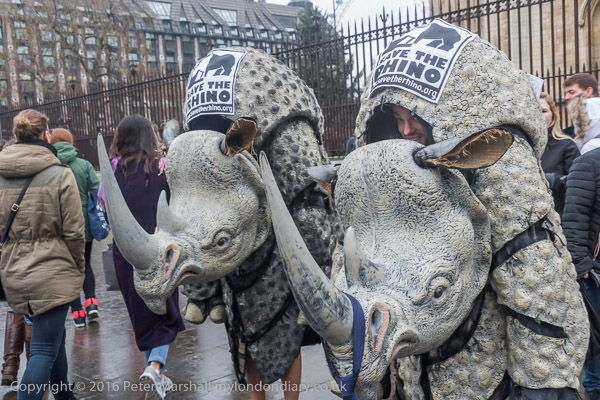
As I walked across the front of Parliament towards Westminster tube station I came across two people in rather impressive rhinoceros costumes who were being photographed in front of the House of Commons, and paused briefly to take a couple of pictures.
What rather surprised me was the almost total lack of interest in them shown by the many tourists walking past. After all it isn’t every day you pass two rhinos on the street.
Save the Rhino
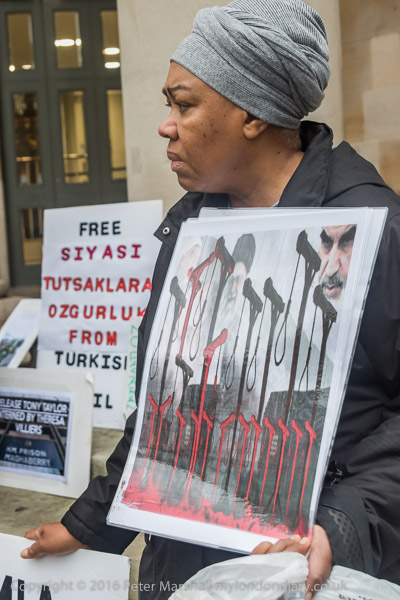
People from various campaigns had come to Broadcasting House to protest and hand in a letter about the BBC’s failure to report on political prisoners held unjustly in jails around the world. They accuse the BBC of an institutional policy of ignoring such cases, including a hundred Irish Republican prisoners, former Black Panther Mumia Abu Jamal held on Death Row in the USA for over 30 years, many Palestinians held in Israeli jails, the victims of Erdogan’s purge in Turkey, the many hanged in Iran and other cases of illegal imprisonment around the world.
BBC censors prison struggles
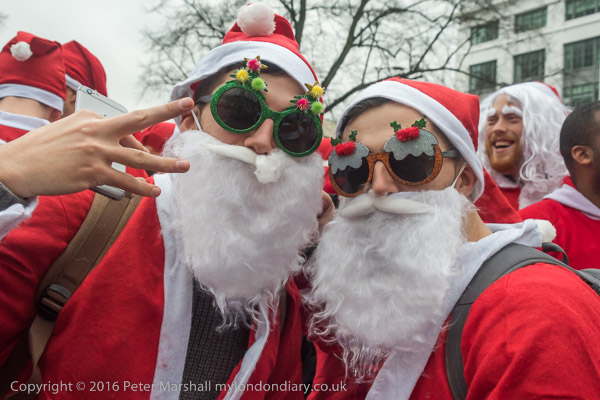
From the BBC I made my way north to Mornington Crescent, where I met one of the four groups of Santacon; the north London group had met up in Camden and were coming down into Central London and soon stopped in a small park.
I found it a little disappointing – as I wrote then,
“this year the event did seem rather more organised and tame, lacking some of the anarchic charm and chaos that brought much of London’s traffic to a halt in previous years – or perhaps I just took these pictures earlier in the day before the Christmas spirits, wine and beer had really kicked in. “
London Santacon 2016
I think police had leaned rather heavily on the organisers and insisted that they move off the streets into areas such as this for much of the event. I didn’t stay with the Santas long because there were other Human Rights Day events to photograph.
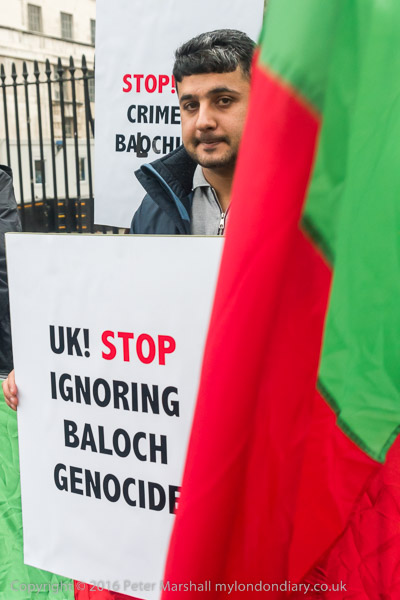
I took the tube back to Westminster where I found Balochs protesting opposite Downing St, calling on Theresa May to speak up for the Baloch people and their freedom against the Pakistan regime which they claim has a policy of genocide against the Baloch people and has killed thousands of Baloch activists and abducted more than 25,000 of them.
They say those abducted are tortured and then killed, with their bodies being dumped in deserted areas. Balochistan was an autonomous kingdom on the border of Pakistan and Iran, and was merged with Pakistan in 1948, the year after Pakistan was created. Since then there have been various Baloch separatist movements which have been brutally repressed by both Pakistan and Iran.
Balochs UN Human Rights Day protest.
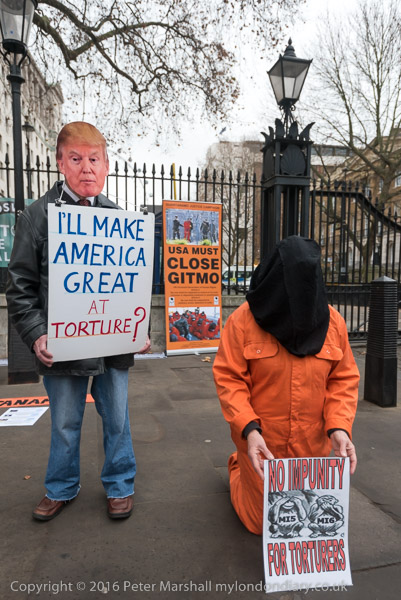
I’d come to Whitehall to report on the Guantanamo Justice Campaign protest on UN Human Rights Day opposite Downing St calling for an end to torture, the closure of Guantanamo and an end to British complicity in torture.
It wasn’t a well attended protest probably because there had been relatively little publicity, but also reflecting the problem of keeping up interest in long running issues such as this which no longer attract much if any attention from our news media. They will argue that it is no longer news, but that is only because they choose not to cover it, instead filling pages and programmes with empty speculation and inconsequential affairs of insignificant so-called celebrities rather than matters of importance.
Human Rights Day call close Guantanamo
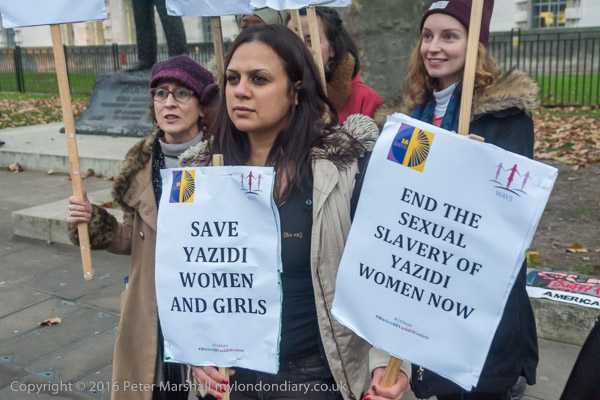
Another issue which has slipped almost completely off the news agenda is the plight of the Yazidi women and girls targeted and captured by ISIS (Da’esh) in Iraq. According to UN reports, more than 5000 Yazidis had been murdered and 5-7,000 abducted. Over 3,400 are believed to be still held, the women subjected to physical and sexual violence, including systematic rape and sex slavery.
The visit to the UK by UN goodwill ambassador Nadia Murad Basee Taha for 16 days of action prompted little or no news coverage.
Save Yazidi women and girls
More about all these events and more pictures on My London Diary.
Save Yazidi women and girls
Human Rights Day call close Guantanamo
Balochs UN Human Rights Day protest
London Santacon 2016
BBC censors prison struggles
Save the Rhino
Silent Chain for Europe
All photographs on this and my other sites, unless otherwise stated, are taken by and copyright of Peter Marshall, and are available for reproduction or can be bought as prints.
